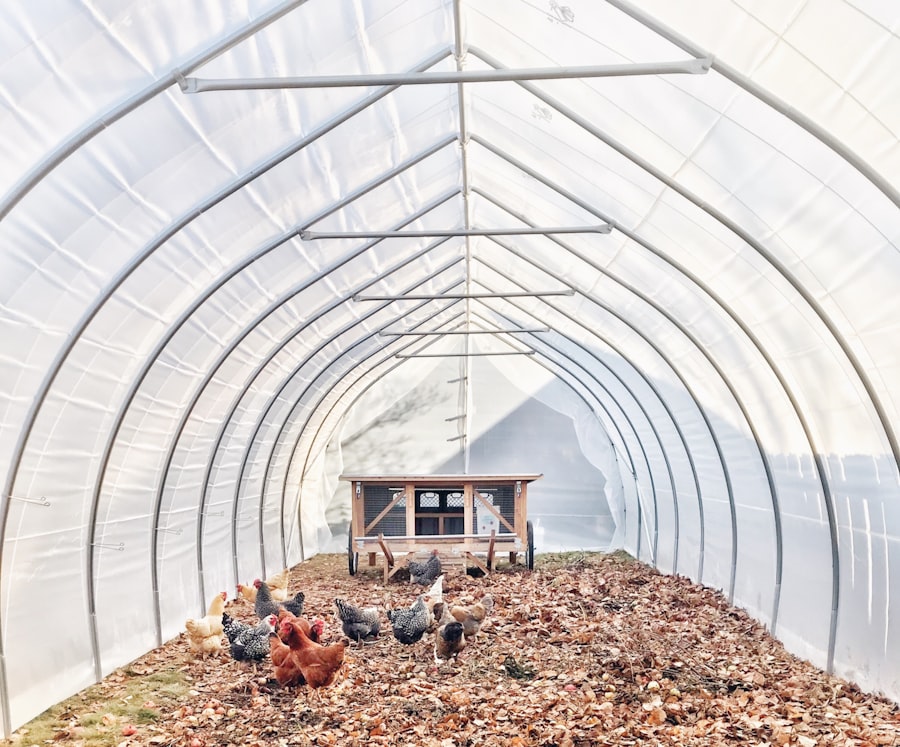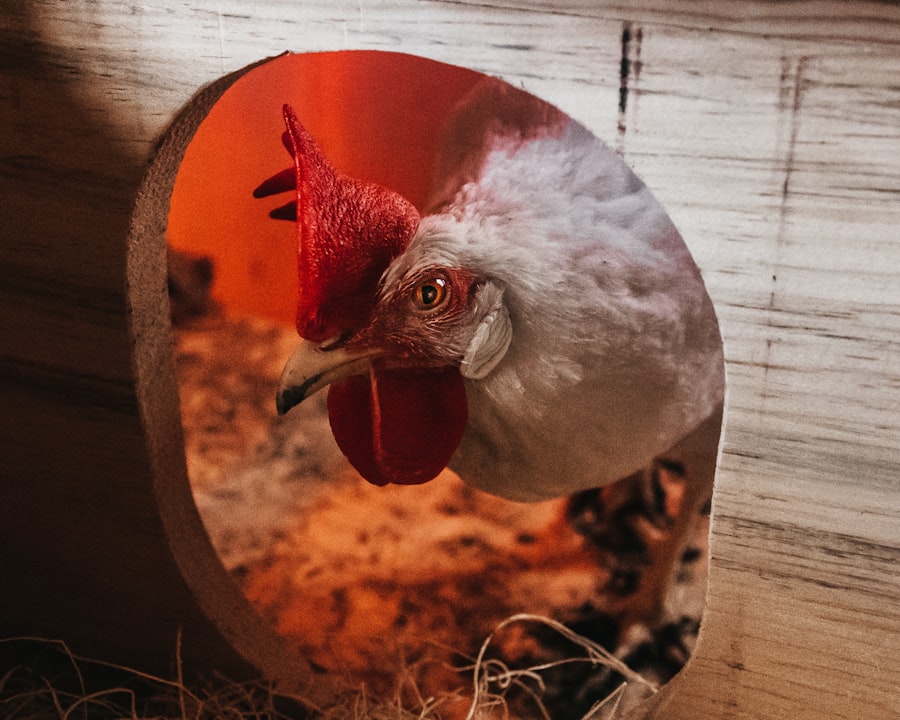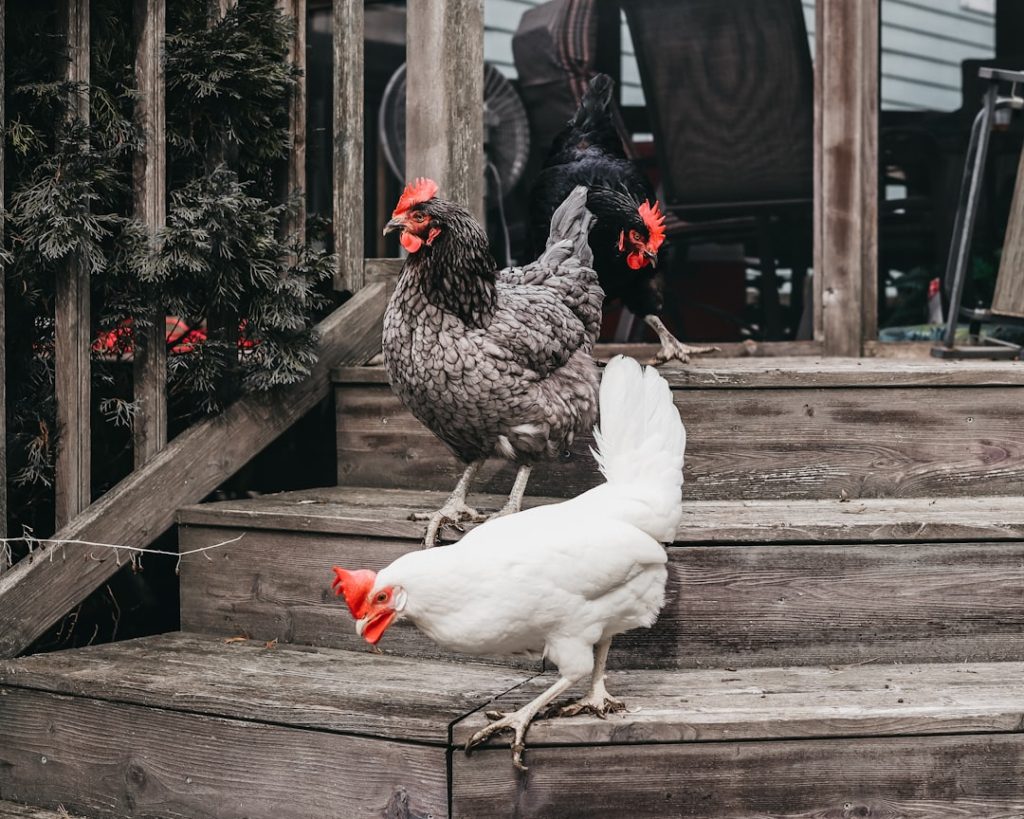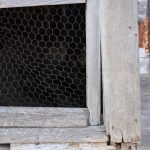Ensuring that chickens receive a balanced diet is crucial for their overall health and well-being. A balanced diet for chickens should consist of a combination of grains, protein, vitamins, and minerals. Grains such as corn, wheat, and barley are essential for providing energy to the chickens.
Protein sources like soybean meal, fish meal, or mealworms are important for muscle development and egg production. Additionally, providing a vitamin and mineral supplement or access to fresh greens and vegetables can help ensure that chickens receive all the necessary nutrients for optimal health. In addition to providing a balanced diet, it’s important to ensure that chickens have access to clean and fresh water at all times.
Water is essential for digestion, temperature regulation, and overall health. Regular cleaning and refilling of water containers is necessary to prevent the growth of harmful bacteria and algae. Providing a balanced diet and access to clean water helps ensure that chickens remain healthy and productive.
Table of Contents
- 1 Maintaining a clean and comfortable coop
- 2 Regular health checks and vaccinations
- 3 Providing ample space for exercise
- 4 Minimizing stress and handling with care
- 5 Implementing a regular egg collection routine
- 6 Monitoring and managing egg production fluctuations
- 7 FAQs
- 7.1 What are some tips for keeping chickens productive?
- 7.2 What should be included in a chicken’s diet to keep them productive?
- 7.3 How much space do chickens need to remain productive?
- 7.4 How can I ensure my chickens have access to clean water?
- 7.5 What are some common health issues that can affect a chicken’s productivity?
- 7.6 How can I maintain a clean and healthy environment for my chickens?
Key Takeaways
- Providing a balanced diet is essential for the overall health and productivity of your chickens.
- Maintaining a clean and comfortable coop is crucial to prevent diseases and ensure the well-being of your flock.
- Regular health checks and vaccinations are necessary to prevent and control common poultry diseases.
- Providing ample space for exercise is important for the physical and mental well-being of your chickens.
- Minimizing stress and handling with care is key to maintaining a calm and healthy flock.
Maintaining a clean and comfortable coop
Preventing Bacterial and Parasitic Buildup
Regularly cleaning the coop and removing soiled bedding can help prevent the buildup of harmful bacteria and parasites.
Regulating Temperature and Humidity
Additionally, providing adequate ventilation and insulation can help regulate temperature and humidity levels within the coop, creating a comfortable environment for your chickens.
Providing Essential Amenities
It’s also important to provide roosting bars and nesting boxes to give your chickens a place to rest and lay eggs. Nesting boxes should be filled with clean bedding material such as straw or wood shavings to provide a comfortable and hygienic environment for egg-laying. By maintaining a clean and comfortable coop, you can help prevent the spread of disease and ensure that your chickens have a safe and healthy living environment.
Regular health checks and vaccinations

Regular health checks and vaccinations are essential for preventing the spread of disease and maintaining the overall health of your flock. Schedule regular check-ups with a veterinarian who specializes in poultry to ensure that your chickens are in good health. During these check-ups, the vet can perform physical exams, check for signs of illness or parasites, and administer any necessary vaccinations.
Vaccinations are an important part of maintaining the health of your flock. Common vaccinations for chickens include those for diseases such as Marek’s disease, Newcastle disease, and infectious bronchitis. These vaccinations can help prevent the spread of disease and protect your chickens from potentially life-threatening illnesses.
By scheduling regular health checks and vaccinations, you can help ensure that your flock remains healthy and disease-free.
Providing ample space for exercise
Chickens need ample space to exercise and move around in order to maintain their physical health and well-being. Providing a spacious outdoor area or free-range access can allow your chickens to engage in natural behaviors such as scratching, pecking, and dust bathing. This not only helps keep them physically fit but also provides mental stimulation and reduces stress.
In addition to outdoor space, it’s important to provide enough room within the coop for your chickens to move around comfortably. Overcrowding can lead to stress, aggression, and an increased risk of disease transmission. Providing ample space for exercise both indoors and outdoors can help ensure that your chickens remain healthy, active, and content.
Minimizing stress and handling with care
Minimizing stress is crucial for maintaining the health and productivity of your flock. Stress can weaken the immune system, making chickens more susceptible to illness and disease. To minimize stress, it’s important to handle your chickens with care and avoid sudden movements or loud noises that can startle them.
Additionally, providing a calm and predictable environment can help reduce stress levels in your flock. This includes maintaining a consistent feeding schedule, keeping the coop clean and comfortable, and providing ample space for exercise. By minimizing stress and handling your chickens with care, you can help ensure that they remain healthy, happy, and productive.
Implementing a regular egg collection routine

Preventing Contamination and Damage
Collecting eggs promptly can help prevent them from being pecked or soiled by other chickens, reducing the risk of contamination. It also encourages hens to continue laying in their nesting boxes rather than seeking out alternative laying spots.
Discouraging Broody Behavior
In addition to maintaining egg quality, regular egg collection can also help prevent the development of broody behavior in hens. Broody hens may become aggressive or stop laying altogether, so it’s important to collect eggs regularly to discourage this behavior.
Ensuring Fresh and Clean Eggs
By implementing a regular egg collection routine, you can help ensure that your eggs are fresh, clean, and free from contamination.
Monitoring and managing egg production fluctuations
Monitoring egg production fluctuations is important for identifying potential health issues or environmental stressors within your flock. Sudden decreases in egg production can be a sign of illness, stress, or nutritional deficiencies. By monitoring egg production on a daily basis, you can quickly identify any changes or abnormalities and take appropriate action.
Managing egg production fluctuations may involve adjusting the diet, providing additional nesting boxes, or addressing any environmental factors that may be causing stress. It’s important to address any issues promptly to prevent further declines in egg production and maintain the overall health of your flock. By monitoring and managing egg production fluctuations, you can help ensure that your chickens remain healthy and productive.
If you’re looking to keep your chickens productive, you may want to consider investing in a high-quality chicken coop like the Snaplock Chicken Coop, which you can learn more about in this article. A well-designed coop can provide your chickens with a safe and comfortable environment, which can help keep them healthy and productive. Additionally, having a well-planned chicken coop run, as discussed in this article, can give your chickens the space they need to exercise and forage, which can also contribute to their overall productivity.
FAQs
What are some tips for keeping chickens productive?
Some tips for keeping chickens productive include providing a balanced diet, ensuring access to clean water, providing adequate space and shelter, and maintaining a clean and healthy environment.
What should be included in a chicken’s diet to keep them productive?
A chicken’s diet should include a balanced mix of grains, protein, vitamins, and minerals. This can be achieved through commercial chicken feed, supplemented with kitchen scraps, greens, and occasional treats.
How much space do chickens need to remain productive?
Chickens need at least 2-3 square feet of space per bird in the coop, and at least 8-10 square feet of outdoor space per bird in a run or free-range area to remain productive.
How can I ensure my chickens have access to clean water?
To ensure chickens have access to clean water, provide them with a clean water source that is regularly refilled and cleaned. Consider using a waterer with a nipple or cup attachment to prevent contamination.
What are some common health issues that can affect a chicken’s productivity?
Common health issues that can affect a chicken’s productivity include parasites, respiratory infections, and nutritional deficiencies. Regular health checks and proper nutrition can help prevent these issues.
How can I maintain a clean and healthy environment for my chickens?
To maintain a clean and healthy environment for chickens, regularly clean the coop, provide proper ventilation, and practice good biosecurity measures to prevent the spread of diseases. Regularly remove soiled bedding and waste.
Meet Walter, the feathered-friend fanatic of Florida! Nestled in the sunshine state, Walter struts through life with his feathered companions, clucking his way to happiness. With a coop that’s fancier than a five-star hotel, he’s the Don Juan of the chicken world. When he’s not teaching his hens to do the cha-cha, you’ll find him in a heated debate with his prized rooster, Sir Clucks-a-Lot. Walter’s poultry passion is no yolk; he’s the sunny-side-up guy you never knew you needed in your flock of friends!







